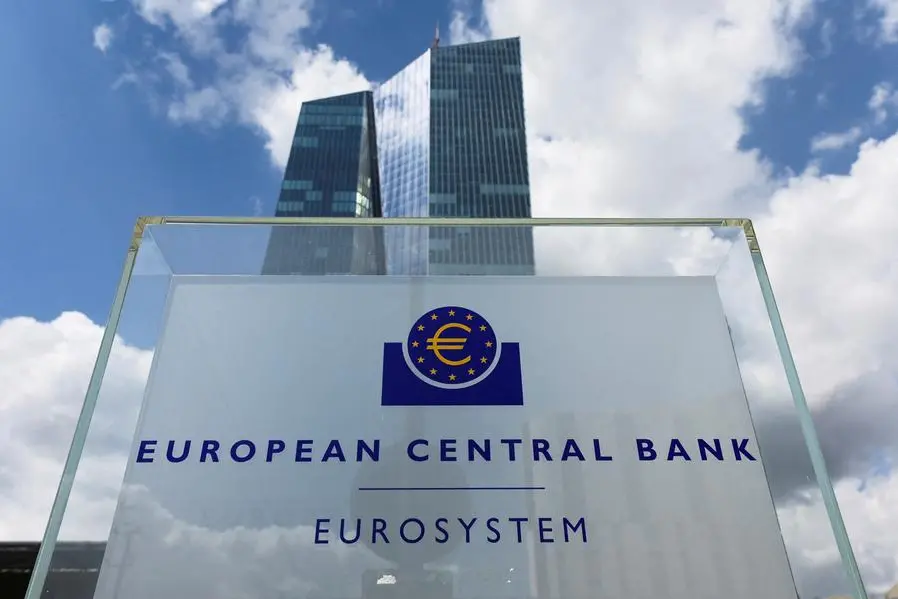PHOTO
Euro area bond yields hit fresh multi-week highs on Friday while money markets trimmed bets on future European Central Bank rate cuts, pricing in a less than 50% chance of a first move in April and around 115 basis points of easing in 2024.
The repricing has been under way since late last Friday amid strong U.S. economic data and rate-setters saying central banks must be cautious before reducing rates.
The ECB still needs more evidence that inflation is heading back to its 2% target before it can cut interest rates, even if there is growing confidence that price pressures are easing, two key policymakers said on Thursday.
Thursday's U.S. figures confirmed underlying labour market strength despite a recent layoff spike, triggering expectations that the Federal Reserve will bide its time before easing. Fed chair Jerome Powell said on Sunday it must be prudent.
ECB euro-short-term rate (ESTR) forwards priced in 118 bps of rate cuts by year-end, from around 140 bps last week, before U.S. jobs data. They discounted 114 bps earlier in the session.
The ESTR has been 10 bps below the deposit facility rate, which the ECB set at 4%.
Analysts mentioned Thursday's comments by ECB hawk Robert Holzmann that "there is a certain chance there will be no rate cut at all this year, or only at the very end of the year".
Market participants label as hawks central bank officials who advocate a tight monetary policy to control inflation, while doves focus more on economic growth and the labour market.
“The hawkish reassessment of ECB cut pricing for the first half is U.S.-led, but the positive turn in the euro area Citi Economic Surprise Index (CESI) and the cut-off for the March staff projections suggest it may have further to run,” Citi said in a note to clients.
Citi suggested the cut-off for the ECB economic projections may have been Wednesday, and that wage figures, which are crucial for a possible central bank decision on rates, will be missing.
CESI measures the sum of the differences between official economic data and market forecasts.
Markets discounted a 48% chance of a first 25 bps ECB rate cut in April, after pricing it in fully at the end of January.
“However, this should not detract from buying the dips in duration (long-dated bonds), in our view,” Citi argued, adding that it had cut its forecast for the year-end 10-year German government bond yield to 1.85% from 2.15%.
Germany’s 10-year government bond yield, the benchmark for the euro area, rose 0.5 bps to 2.36% after hitting 2.389%, its highest level since early December.
Investors will focus on a revision to U.S. consumer price index figures covering the last five years, later in the session, recalling that the revisions significantly altered the picture this time last year, taking Fed officials by surprise.
"These (inflation) rates will be affected by the annual revision and therefore it could increase or decrease the confidence that the FOMC has in a sustainable return to 2% inflation and it may affect the timing of the first rate cut," said Philip Marey senior U.S. strategist at Rabobank.
Italy’s 10-year government bond yield was flat at 3.94%, with the gap between Italian and German 10-year yields at 156 bps.
(Reporting by Stefano Rebaudo; Editing by Kevin Liffey and Alison Williams) ;))





















